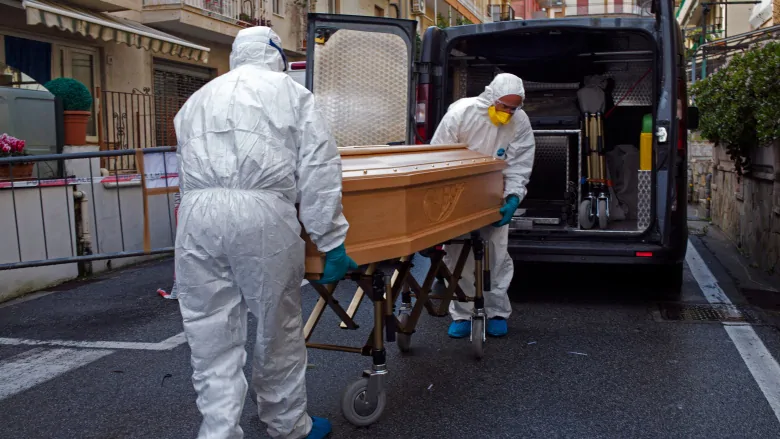We’re answering your questions about the pandemic. Send yours to COVID@cbc.ca and we’ll answer as many as we can. We’ll publish a selection of answers every weekday online, and also put some questions to the experts during The National and on CBC News Network.

We’re answering your questions about the pandemic. Send yours to COVID@cbc.ca and we’ll answer as many as we can. We’ll publish a selection of answers every weekday online, and also put some questions to the experts during The National and on CBC News Network. So far we’ve received more than 20,000 emails from all corners of the country.
Can the coronavirus spread from a dead body?
Fran J. sent this question about whether the virus can jump from the dead to the living.
Right now, Health Canada has no clear answer, but here’s what we do know:
SARS-CoV-2 (the proper name for the coronavirus responsible for COVID-19) can remain infectious on different surfaces for varying amounts of time.
“So, it would be possible that the virus could persist and remain infectious in or on the body of someone who has died,” says Dr. Ilan Schwartz, infectious disease specialist and assistant professor at the University of Alberta.
During the first SARS outbreak in 2003, data suggested the virus could remain infectious in bodily fluids such as blood, urine and feces for 72 to 96 hours, says Jason Kindrachuk, microbiologist and assistant professor at the University of Manitoba.
“This doesn’t perfectly mimic what happens in a person, but it gives us some ideas on how stable coronaviruses are in different bodily fluids and may give some information on SARS-CoV-2,” Kindrachuk said.
This means it is still possible for someone who handles or touches a body infected with the virus to also become infected, says Schwartz.
Patrick Curry, the acting president of Nova Scotia’s Funeral Service Association tells CBC News “Things have changed quite drastically.” He adds it is important to care for people who have lost loved ones, but also stay away from them physically.
Funeral services, especially rituals that call for the body to be washed and shrouded, are adapting to the pandemic.

